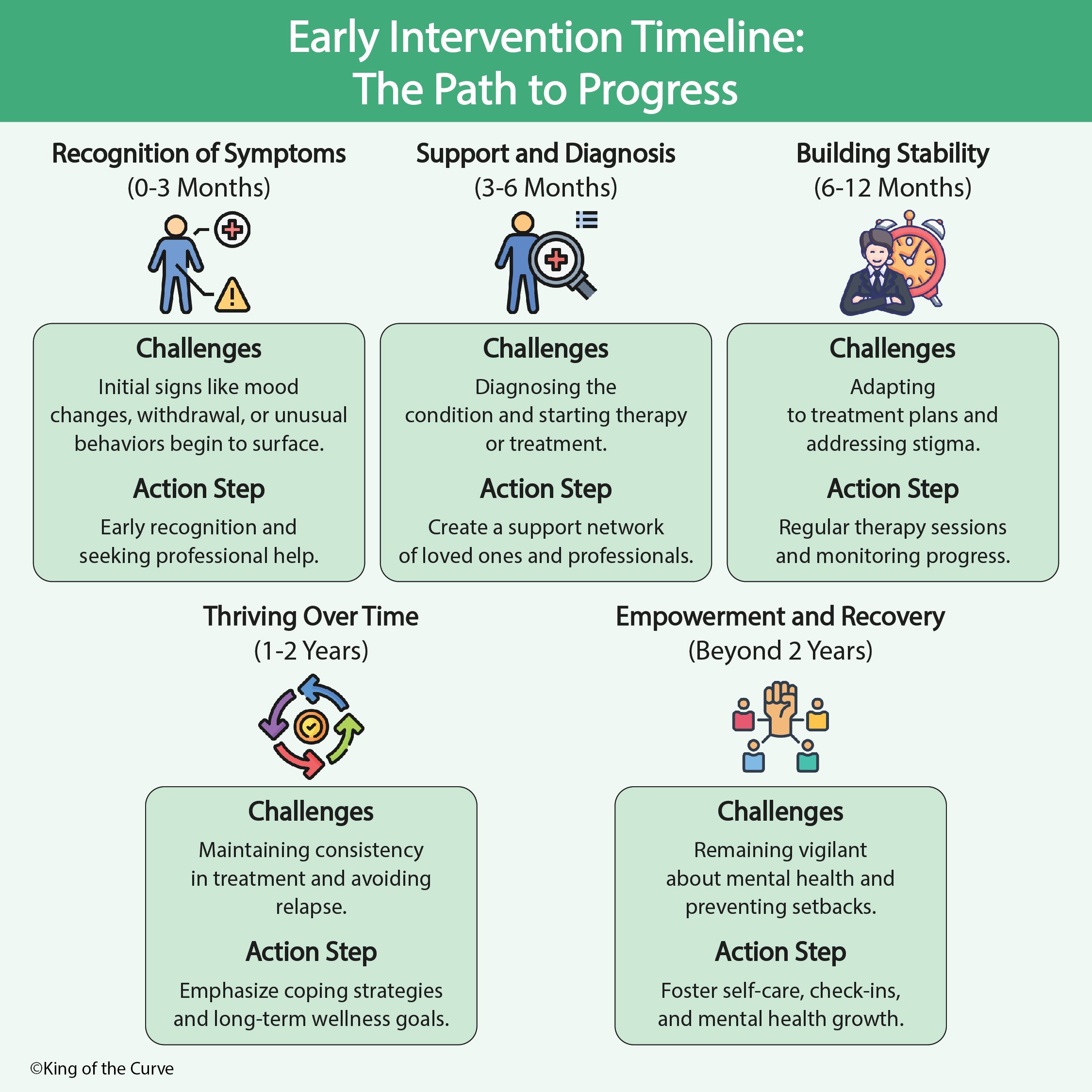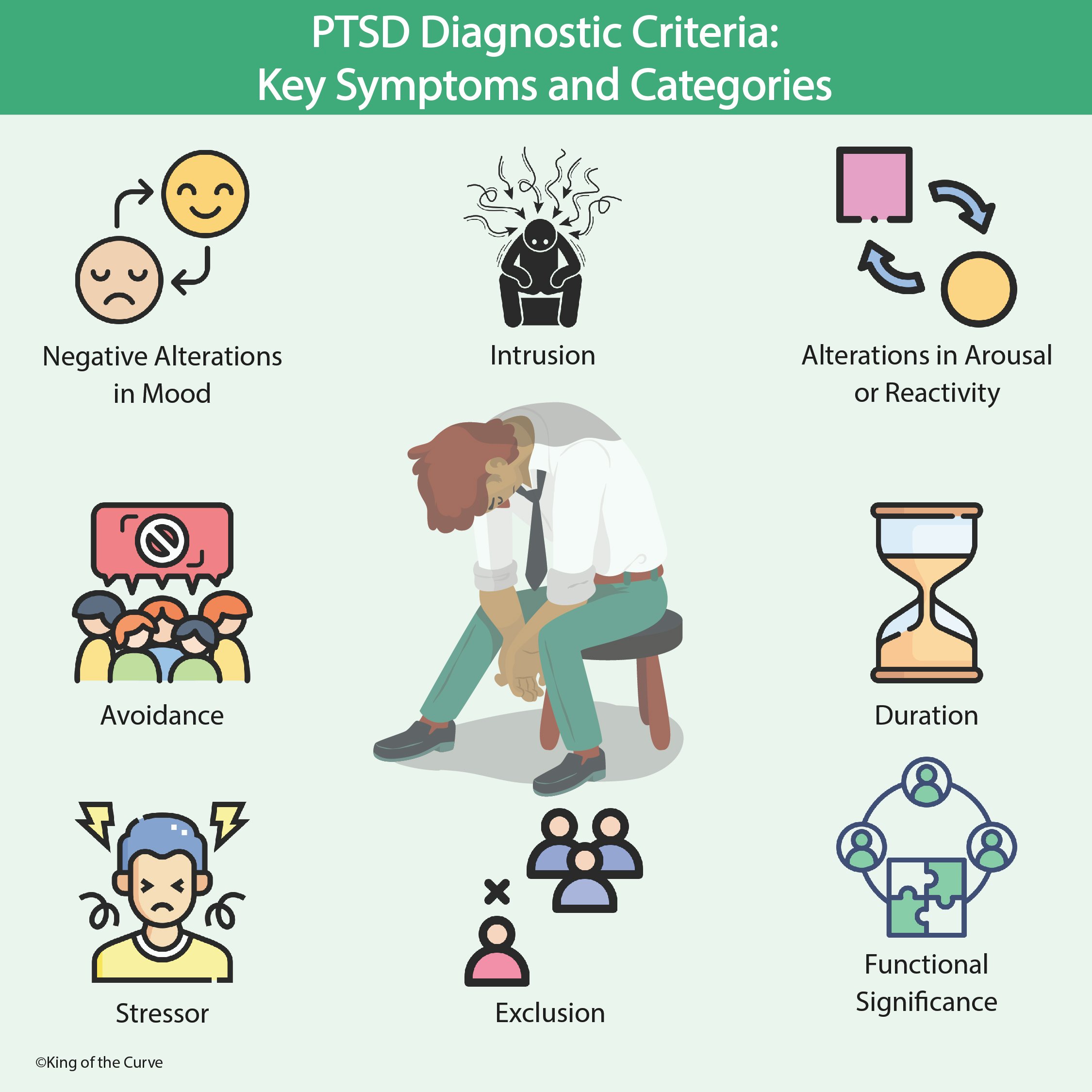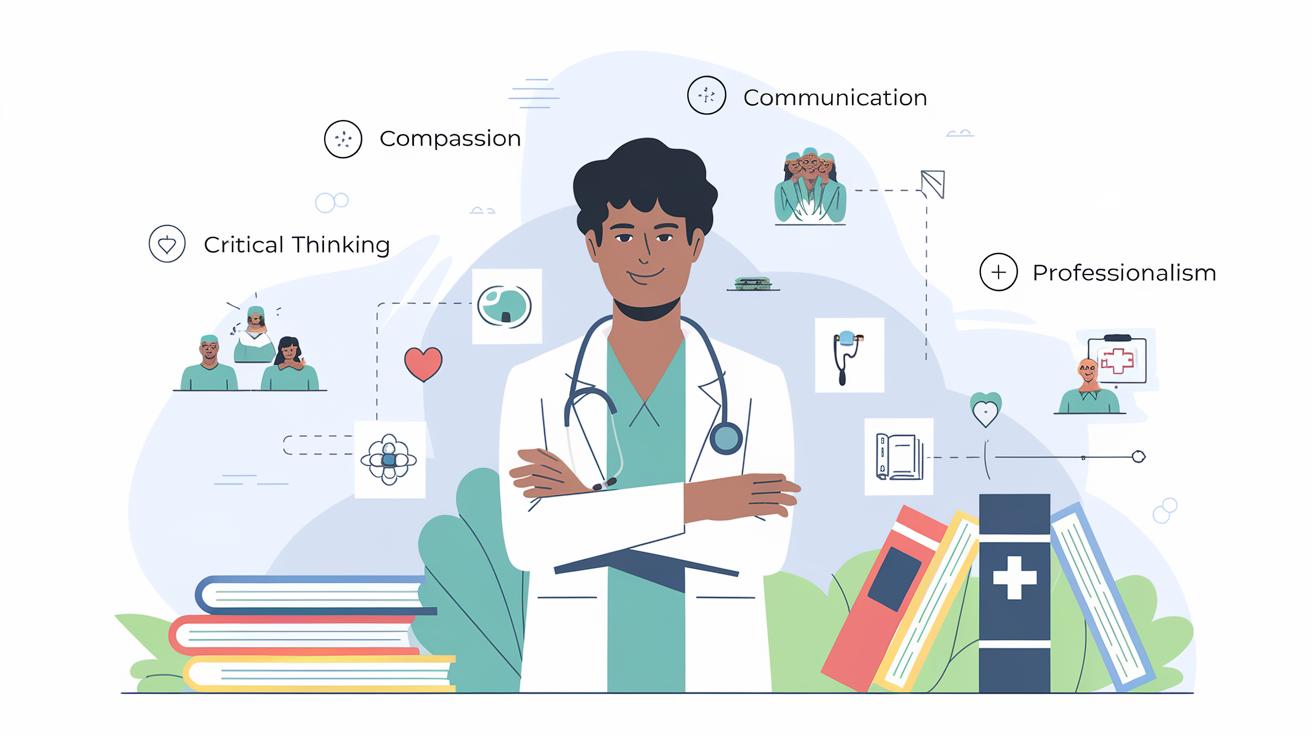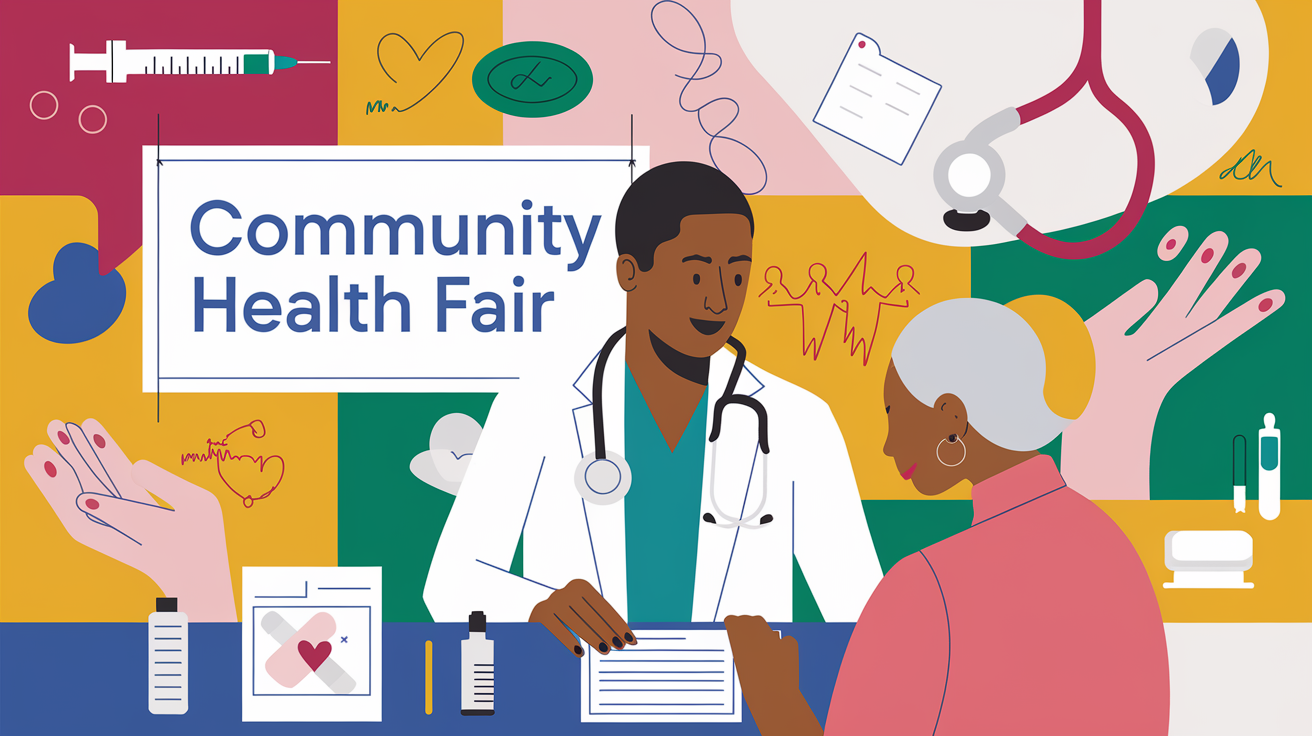
Empathy Over Stigma – Understanding Delusions and Hallucinations for Pre-Med Students
Misconceptions about mental health conditions, particularly delusions and hallucinations, can lead to stigma, fear, and inadequate support for those affected. By fostering understanding and empathy, we can break down barriers and improve patient outcomes.

The Power of Empathy in Mental Health
Mental health awareness isn’t just a buzzword—it’s a cornerstone of modern medicine. As you prepare for the MCAT, you’ll encounter questions about psychological disorders, including symptoms like delusions and hallucinations, which are often tied to conditions like schizophrenia or bipolar disorder. But beyond the exam, understanding stigma, empathy, and mental health symptoms prepares you to connect with patients in real-world clinical settings.

Understanding the Importance of Early Mental Health Intervention
Mental health plays a crucial role in our overall well-being, yet early intervention is often overlooked. The journey to recovery is a process, and taking the right steps at the right time can make all the difference. In this blog, we’ll explore the early intervention timeline and how recognizing symptoms, seeking support, and maintaining stability can lead to long-term mental wellness.

Understanding PTSD: Key Symptoms and Diagnostic Criteria
Learn about PTSD symptoms, diagnosis, and treatment options. Understand key signs like intrusion, avoidance, and mood changes. Find help for PTSD recovery today!

Gradual Physical Changes and Social Engagement Across Adulthood
Discover how physical changes occur in adulthood and the importance of social engagement for healthy aging. Learn prevention tips for aging gracefully!

Erikson’s Stages of Psychosocial Development: Conflict and Growth Across the Lifespan
Explore Erikson’s 8 Stages of Psychosocial Development, from infancy to later life. Learn about key conflicts, positive outcomes, and how each stage shapes personality and well-being.

Erikson’s Stages of Psychosocial Development: A Comprehensive Guide
Human development is a complex journey shaped by experiences, relationships, and challenges. One of the most influential theories explaining this process is Erik Erikson’s Psychosocial Development Theory. It outlines eight key stages spanning from infancy to later life, each defined by a psychosocial conflict that must be resolved to achieve healthy psychological growth.

Seasonal Affective Disorder (SAD): Understanding the Emotional Impact of Changing Seasons
Seasonal Affective Disorder is a real and impactful condition, but by recognizing its signs and symptoms, individuals can take proactive steps to manage it effectively. Whether it’s light therapy, staying socially active, or improving diet and sleep, small lifestyle changes can make a big difference in combating the winter blues.

Abdominal Aorta: Key Anatomy and Clinical Relevance for the MCAT
The abdominal aorta is a major artery that supplies oxygenated blood to the abdominal organs and lower extremities. Understanding its branches, anatomical positioning, and clinical significance is crucial for medical students and MCAT aspirants.

Mechanism of Action of Selective Serotonin Reuptake Inhibitors (SSRIs) – MCAT Behavioral Science Insight
Selective serotonin reuptake inhibitors (SSRIs) are a widely prescribed class of antidepressants that play a key role in treating mood disorders. Understanding their mechanism of action is essential for MCAT success, particularly in the Psychological, Social, and Biological Foundations of Behavior section.

How Cultural and Social Contexts Shape Behavior: A Deep Dive for MCAT Success
Understanding cultural and social contexts is crucial for the MCAT, as it enhances your grasp of human behavior, a core component of the Psychological, Social, and Biological Foundations of Behavior section. This topic isn't just about memorizing definitions—it's about analyzing how norms, values, peer influence, and cultural dynamics influence behavior.

What Makes a Great Doctor? Reflecting on the Core Traits Med Schools Look For
Becoming a great doctor goes beyond academic excellence—medical schools seek candidates who demonstrate compassion, critical thinking, adaptability, and a passion for lifelong learning. These core traits help doctors build trust with patients, navigate complex medical situations, and continuously evolve in their practice. Aspiring medical students can develop these qualities through clinical experiences, volunteer work, and utilizing tools like King of the Curve to enhance problem-solving and communication skills.

The Ultimate Pre-Med Planner: Key Deadlines and Milestones for 2025
Planning for medical school requires careful organization and strategic goal-setting. From MCAT prep to application submissions, staying on track with deadlines is crucial for success. This pre-med planner outlines key milestones—finalizing study plans, securing recommendations, and preparing for interviews—while leveraging tools like King of the Curve to optimize your preparation. Stay focused and proactive to ensure a smooth journey toward medical school in 2025.

Top Health Concerns in 2025: Why Premeds Should Be Aware of Public Health Trends
As future healthcare professionals, premed students must stay informed about the evolving landscape of public health. In 2025, critical issues such as the mental health crisis, chronic disease management, and health disparities continue to shape healthcare delivery. Understanding these trends allows aspiring doctors to provide better patient care, advocate for preventive measures, and address social determinants of health. Platforms like King of the Curve help students stay ahead by offering personalized study tools and insights into key healthcare challenges.

New Year, New You: Setting Realistic Goals for NCLEX Prep and Beyond
The new year is the perfect opportunity for nursing students to set achievable goals for NCLEX preparation and their future careers. By assessing progress, setting SMART goals, and developing a structured study plan, you can stay on track and maximize your success. Incorporating tools like King of the Curve’s Adaptive Q-Bank, practicing self-care, and celebrating milestones along the way will help you stay motivated and focused. With a balanced approach, you can confidently work towards becoming a licensed nurse in 2025.

Most Challenging NCLEX Topics: Insights from Recent Pass Rates
Preparing for the NCLEX can be daunting, especially when facing notoriously challenging topics like pharmacology, management of care, and physiological adaptation. Recent pass rate data highlights these areas as key struggles for test-takers, emphasizing the need for targeted preparation. Nursing students can improve their confidence by using adaptive learning tools like King of the Curve, engaging in scenario-based practice, and utilizing visual aids to simplify complex concepts. With the right approach, mastering these tough topics is within reach.

January is AMCAS Verification Season: How to Avoid Common Pitfalls
AMCAS verification season is here, and ensuring your medical school application is accurate and complete is key to avoiding delays. Common pitfalls like transcript discrepancies, incorrect course classifications, and missing information can slow down the process. By submitting early, carefully reviewing coursework, and using resources like King of the Curve to stay organized, you can navigate verification smoothly and increase your chances of early interview invites. Stay proactive and make this crucial step in your medical journey a success.

Martin Luther King Jr.'s Legacy in Healthcare: Lessons for Aspiring Nurses
Dr. Martin Luther King Jr.'s advocacy for healthcare equity serves as an enduring lesson for aspiring nurses. His belief that “injustice in healthcare is the most shocking and inhumane” highlights the ongoing disparities that healthcare professionals must address. Future nurses can honor his legacy by advocating for underserved communities, providing compassionate and culturally competent care, and committing to lifelong learning. By utilizing resources like King of the Curve, nursing students can equip themselves with the knowledge and skills to create a more equitable healthcare system.

How to Celebrate Martin Luther King Jr. Day as a Premed: Volunteering and Giving Back
Martin Luther King Jr. Day is a meaningful opportunity for premed students to honor Dr. King’s legacy through service and community engagement. Volunteering at health screenings, food banks, or educational initiatives not only helps those in need but also strengthens your empathy, leadership skills, and medical school application. Whether you're mentoring aspiring healthcare students or participating in environmental clean-up efforts, giving back aligns with the values of compassion and equity that are essential in medicine.

The Role of Virtual Simulation in NCLEX Preparation: How Technology Is Transforming Nursing Education
Virtual simulation is revolutionizing NCLEX preparation by providing nursing students with immersive, hands-on learning experiences that bridge the gap between theory and practice. These digital tools allow students to engage in realistic clinical scenarios, build confidence, and enhance their critical thinking skills—all in a risk-free environment. With platforms like King of the Curve offering adaptive Q-Banks, gamified learning, and interactive study tools, students can prepare for the evolving NCLEX exam more effectively and efficiently.
